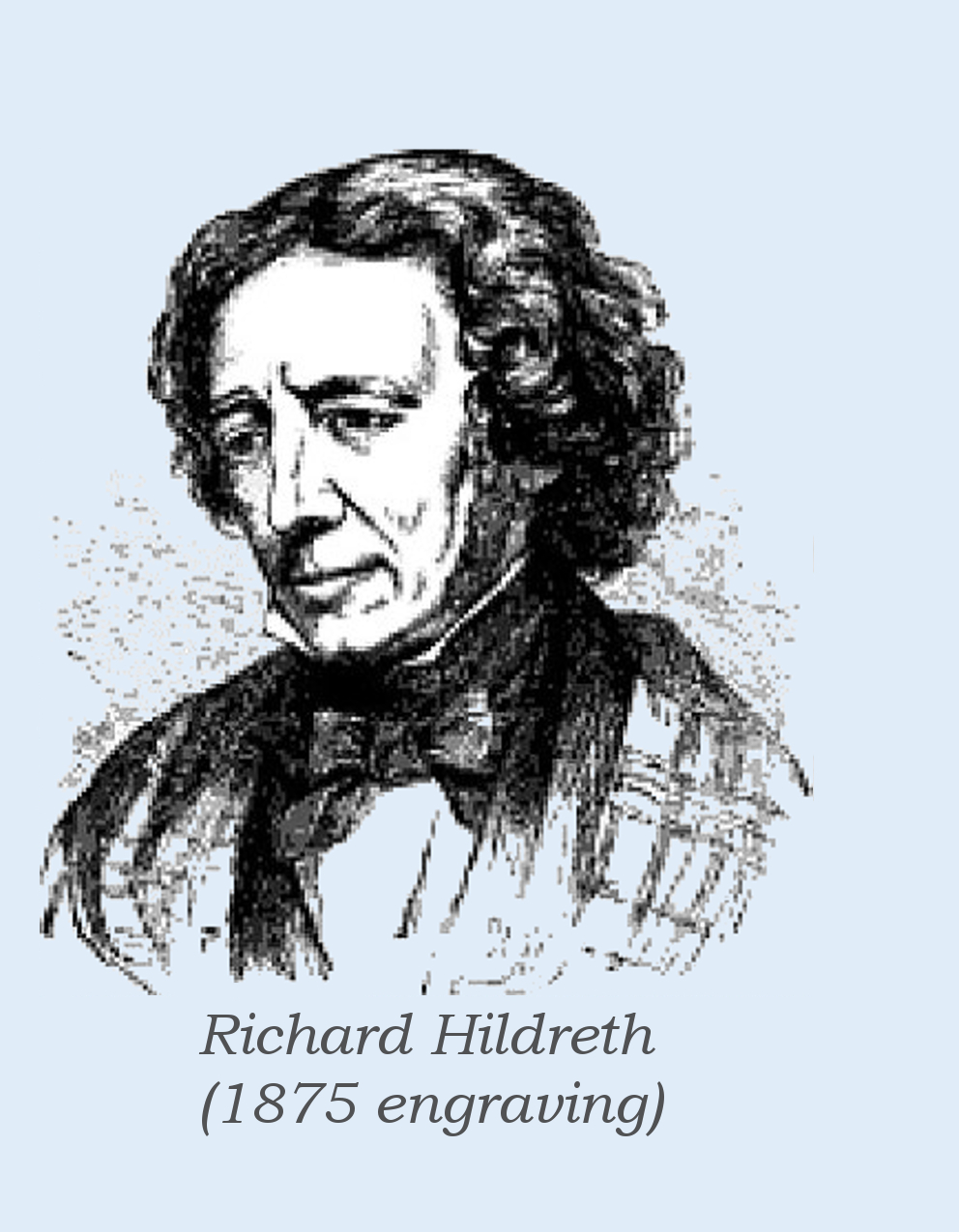
Richard Hildreth
 Biography
BiographyRichard Hildreth (June 28, 1807–July 11, 1865) was an American journalist, author, and historian. He is best known for writing the six-volume History of the United States of America covering the years 1497–1821, published over the period 1840–1853. Historians consider it a highly accurate political history of the early Republic but with a strong bias in favor of the Federalist Party and the abolition of slavery.
He was born at Deerfield, Massachusetts, the son of Hosea Hildreth (1782–1835), a teacher of mathematics and later a Congregational minister. He attended Phillips Exeter Academy starting in 1816 and staying for seven years thereafter. In 1826 he graduated from Harvard College. After studying law at Newburyport, he was admitted to the bar at Boston in 1830.
In 1832 he became joint founder and editor of a daily newspaper, the Boston Atlas, where he served as the editor off and on for about eight years. In 1834 he finished his popular anti-slavery novel, The Slave: or, Memoirs of Archy Moore, which was published in 1836 and then as an enlarged edition in 1852 as The White Slave: Another Picture of Slave Life in America. In 1840 he removed, on account of his health, to British Guiana, where he lived for three years and was editor of two weekly newspapers in succession at Georgetown. Between 1857 and 1860 Hildreth worked for the New York Tribune and during the same period he wrote several anti-slavery tracts for the fledgling Republican party under various pseudonyms. Poor health forced him to retire from his writing career in 1860. As a meed, Massachusetts Governor Nathaniel Prentiss Banks and Senator Charles Sumner successfully lobbied for Hildreth’s appointment as the United States consul at Trieste in 1861. In 1865 he resigned from that position and moved to Florence, where he died. He is buried there near Theodore Parker in the English Cemetery.
Bibliography
The White Slave: Another Picture of Slave Life in America (1836)
Banks, Banking, and Paper Currencies (1837)
Despotism in America (1840)
Theory of Morals (1844)
Theory of Politics (1853)
Japan as It Was and Is (1855)
History of the United States of America (1856)
Lives of Atrocious Judges (1856)